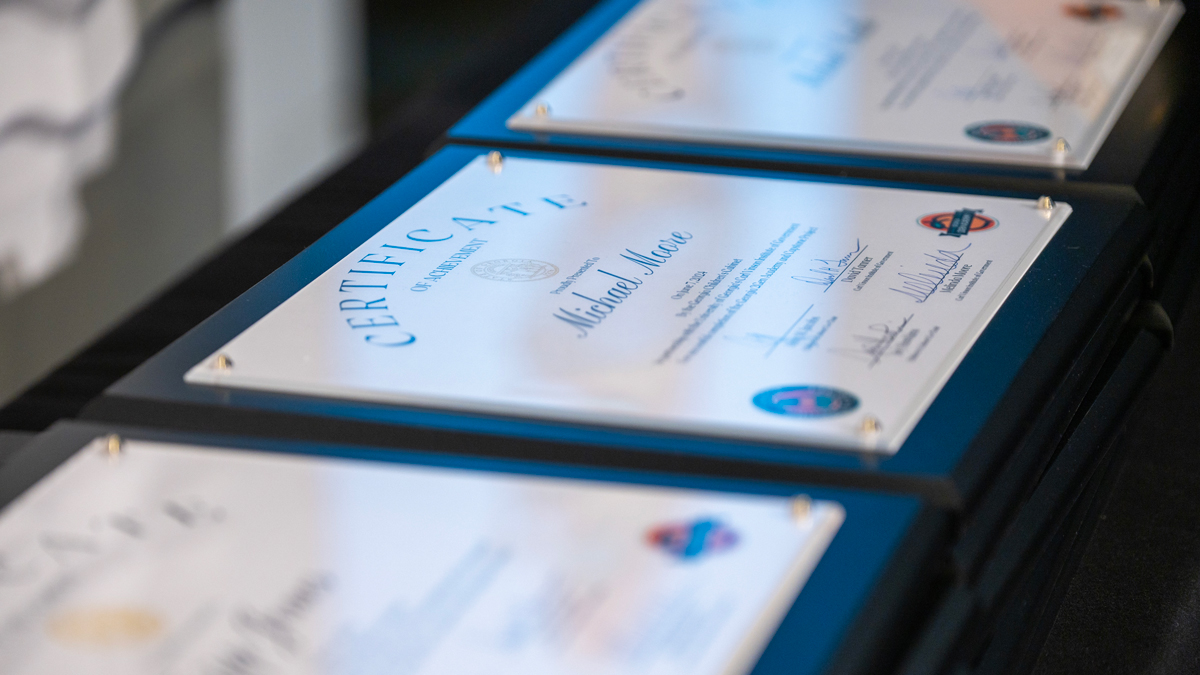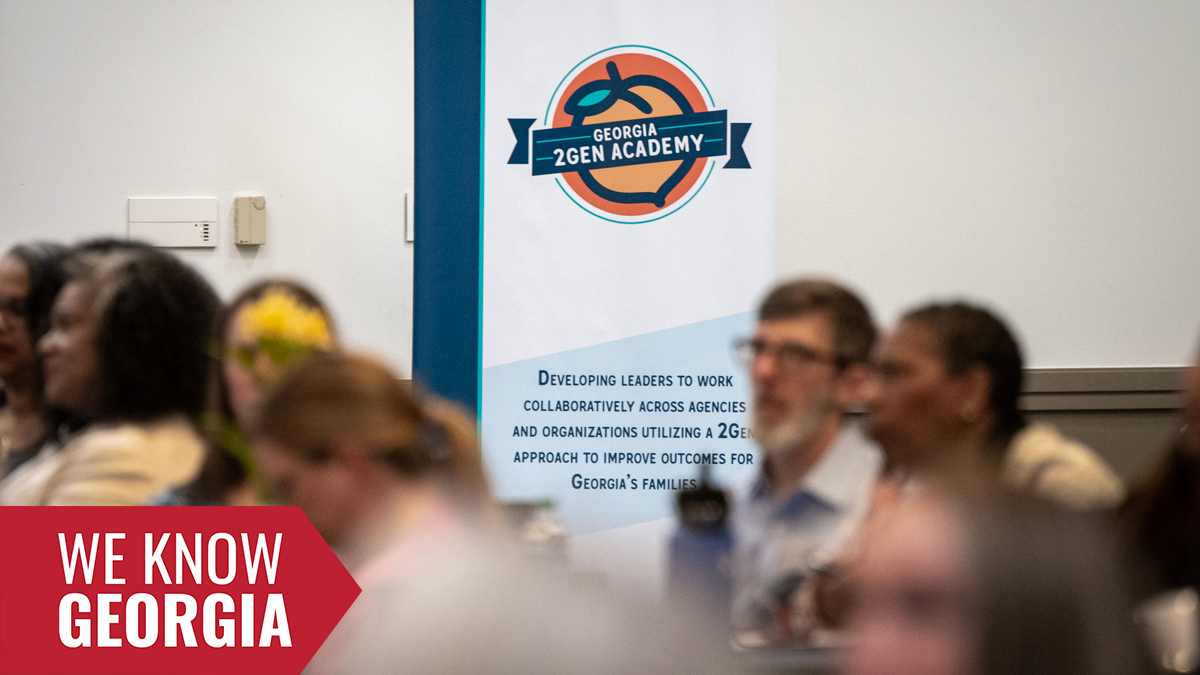UGA Institute of Government partners with Georgia Children’s Cabinet for first-of-its-kind 2Gen Leadership Academy
The 2Gen Leadership Academy, a first-of-its-kind partnership between the University of Georgia Carl Vinson Institute of Government and the Georgia Children’s Cabinet, is changing how state agencies and other organizations work together to help Georgia families thrive.
2Gen—short for “two-generation”—is a set of approaches applied in policy and service provision that intentionally and simultaneously work with children and their parents or caregivers to build the well-being of the entire family.
“Children come with adults, and if a child needs state-level support services, the family usually does too,” said Amy Jacobs, Georgia Children’s Cabinet co-chair and commissioner of the Georgia Department of Early Care and Learning. “By incorporating the 2Gen approach, we’re ensuring that we serve children and their caregivers together, so they succeed together.”
The Georgia Children’s Cabinet, a nonpartisan organization that aims to enhance children’s early education experience strategically, reached out to the UGA Institute of Government to create and facilitate the 2Gen Leadership Academy, the nation’s first cross-agency academy focused on the 2Gen approach. The program has been recognized as a national model by Ascend at the Aspen Institute, an educational and policy studies organization that has championed the 2Gen approach since 2012.
“The intended purpose was to get a culture change within state agencies, and the development of multi-agency relationships has really been one of the benefits of this program,” said the Institute of Government’s David Tanner. “Most 2Gen academies or content have been within a single department, a single county, or a team that’s already working together. Georgia’s 2Gen Leadership Academy is a new model and provides vital knowledge to Georgia Children’s Cabinet member agencies and organizations as they focus policy and services for health, safety, literacy and other issues important for family well-being across the state.”
Georgia Children’s Cabinet member agencies and organizations nominate staff to attend the academy. From September to June, participating agencies take turns hosting the cohort in courses led by nationally recognized experts.

(Photo by Dot Paul)
Michael Moore, senior business intelligence and data architect for the Governor’s Office of Student Achievement (GOSA), graduated from the academy’s second cohort and said his participation has given him a new perspective on how his agency works with data.
“I support many of GOSA’s public dashboards, and the leadership academy has helped me think about how people interact with our data. Part of 2Gen is human-centered design. We want to ensure that our data is easy to access and understand,” Moore said.
In addition, participants work on cross-agency capstone projects in smaller teams as part of the academy. Each team works with a Family Project Advisor, someone with lived experience in their focus area. Teams have researched projects ranging from prenatal care access in rural Georgia to parent and caregiver resource guides. The teams present their projects at the academy’s graduation ceremony.
Anne Ladd, Georgia Department of Education family engagement specialist, worked on a multi-generational literacy social media campaign as a capstone project with her group as part of the second cohort.
“I loved seeing all the various channels and collaboration opportunities,” Ladd said. “I learned a lot about other agencies and how they work, where we intersect, and where maybe we can contribute to each other’s work. That was valuable to me.”
More than 50 participants from 16 agencies and organizations have graduated from two 2Gen Leadership Academy cohorts so far.
The academy’s third cohort began in September, funded by a $250,000 gift through the Georgia Foundation for Early Care and Learning. Laura Wagner, the foundation’s executive director, said the academy provides participants invaluable collaborative opportunities.
“Participants wrestle with important questions related to barriers to service and what the needs of a whole family would look like versus the needs of the individuals. They come away with fresh ideas and a sense of how to better work with families,” Wagner said. “There’s a paradigm shift that occurs over the course of the academy that is really wonderful.”
